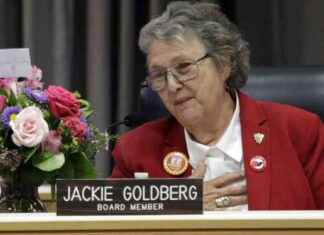The head of state of the former Soviet Republic of Kazakhstan has made an astonishing change of course since the beginning of the year. Tokayev broke with his sponsor and distanced himself from his overpowering neighbor Russia. However, it is unclear how far he will actually push the reform course that has been announced.
In the early presidential elections in Kazakhstan, incumbent Kassim-Jomart Tokayev is about to be re-elected. In extrapolations from the evening after the polling stations closed, the 69-year-old received 82.45 percent of the votes. Opinion polls before the election had already suggested that Tokayev would prevail against five other, lesser-known candidates. The head of state wants to be elected to office for seven years after a constitutional amendment. Previously, presidents had been elected for five-year terms. Around twelve million people were called to vote.
The Central Asian country with borders to China and Russia, among others, has been courted more intensely by Europe in recent months, not least because of its oil reserves. It is unclear which course Tokayev will follow. At the beginning of the year, he used Russia to quell domestic unrest that resulted in at least 238 deaths and around 10,000 arrests. After that, however, he hardly sought contact with the government in Moscow and avoided publicly supporting Russia’s war in Ukraine. Russia is Kazakhstan’s largest trading partner. However, Russia’s slide into recession has weakened the Kazakh economy.
As interim head of state at the time, Tokayev won the last presidential election in early 2019 with around 71 percent of the vote. He was the hand-picked successor to Nursultan Nazarbayev, who had resigned from office after almost 30 years, but continued to hold important positions in power politics. Earlier this year, however, Tokayev broke with Nazarbayev.
During his tenure, Tokayev pushed through constitutional amendments that, among other things, are intended to limit his own reign to two terms. He has also pledged to reduce income inequality in the country by fighting corruption and sharing the country’s wealth more fairly.
Tokayev has now declared that he will continue to restructure the political system and that early parliamentary elections will be held in 2023. Tokayev has introduced reforms designed to make it easier for new political parties to form.
International observers from the Organization for Security and Cooperation in Europe (OSCE) plan to give their verdict on the election on Monday. They had previously criticized, among other things, restrictions on the registration of candidates for election and a lack of transparency in media ownership.






